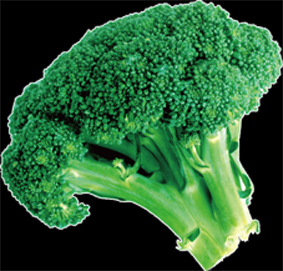 Light has been cast on the interaction between broccoli consumption and reduced prostate cancer risk. Researchers writing in BioMed Central抯 open access journal Molecular Cancer have found that sulforaphane, a chemical found in broccoli, interacts with cells lacking a gene called PTEN to reduce the chances of prostate cancer developing. Richard Mithen from the Institute of Food Research worked with a team of researchers on Norwich Research Park, both in the UK, found that in cells that express PTEN, dietary intervention with sulforaphane has no effect on the development of cancer. In cells that don't express the gene, however, sulforaphane causes them to become less competitive, providing an explanation of how consuming broccoli can reduce the risk of prostate cancer incidence and progression. "This also suggests potential therapeutic applications of sulforaphane and related compounds," according to Mithen.adidas
Light has been cast on the interaction between broccoli consumption and reduced prostate cancer risk. Researchers writing in BioMed Central抯 open access journal Molecular Cancer have found that sulforaphane, a chemical found in broccoli, interacts with cells lacking a gene called PTEN to reduce the chances of prostate cancer developing. Richard Mithen from the Institute of Food Research worked with a team of researchers on Norwich Research Park, both in the UK, found that in cells that express PTEN, dietary intervention with sulforaphane has no effect on the development of cancer. In cells that don't express the gene, however, sulforaphane causes them to become less competitive, providing an explanation of how consuming broccoli can reduce the risk of prostate cancer incidence and progression. "This also suggests potential therapeutic applications of sulforaphane and related compounds," according to Mithen.adidasAnti-cancer effects of broccoli ingredient explained
Source: Release Date:2010-12-22 252
 Light has been cast on the interaction between broccoli consumption and reduced prostate cancer risk. Researchers writing in BioMed Central抯 open access journal Molecular Cancer have found that sulforaphane, a chemical found in broccoli, interacts with cells lacking a gene called PTEN to reduce the chances of prostate cancer developing. Richard Mithen from the Institute of Food Research worked with a team of researchers on Norwich Research Park, both in the UK, found that in cells that express PTEN, dietary intervention with sulforaphane has no effect on the development of cancer. In cells that don't express the gene, however, sulforaphane causes them to become less competitive, providing an explanation of how consuming broccoli can reduce the risk of prostate cancer incidence and progression. "This also suggests potential therapeutic applications of sulforaphane and related compounds," according to Mithen.adidas
Light has been cast on the interaction between broccoli consumption and reduced prostate cancer risk. Researchers writing in BioMed Central抯 open access journal Molecular Cancer have found that sulforaphane, a chemical found in broccoli, interacts with cells lacking a gene called PTEN to reduce the chances of prostate cancer developing. Richard Mithen from the Institute of Food Research worked with a team of researchers on Norwich Research Park, both in the UK, found that in cells that express PTEN, dietary intervention with sulforaphane has no effect on the development of cancer. In cells that don't express the gene, however, sulforaphane causes them to become less competitive, providing an explanation of how consuming broccoli can reduce the risk of prostate cancer incidence and progression. "This also suggests potential therapeutic applications of sulforaphane and related compounds," according to Mithen.adidas
You May Like

 iConnectHub
iConnectHub
 Login/Register
Login/Register Supplier Login
Supplier Login



























